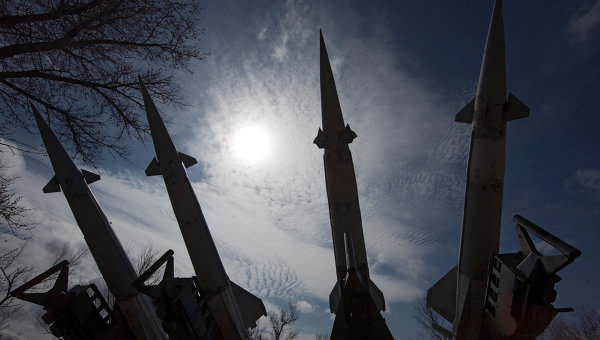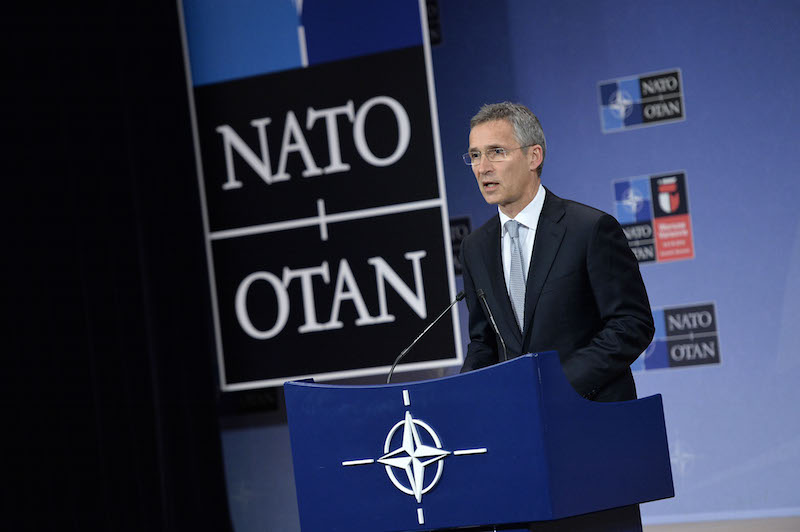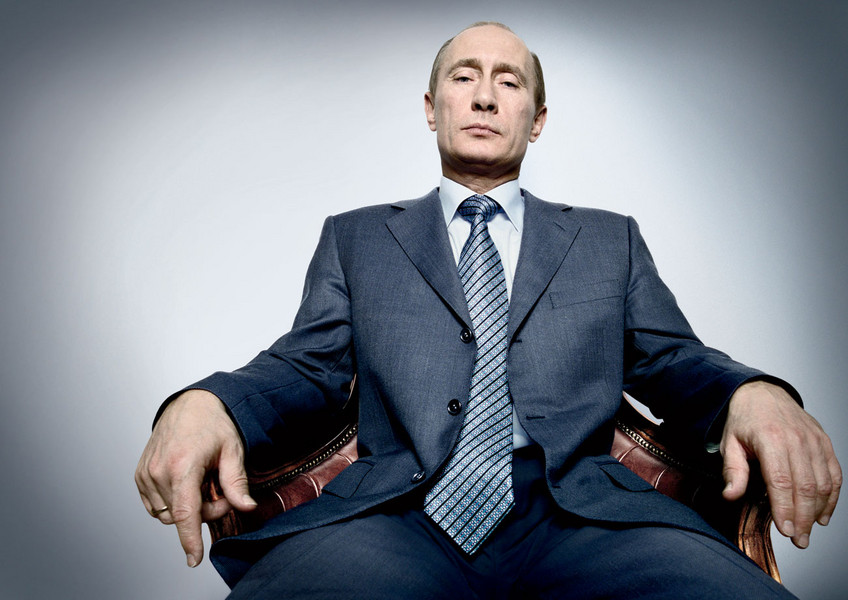Progress and Setbacks
On January 16 and 17, the Military Committee Chiefs of Defence met to discuss and provide military advice for the North NATO Council and other NATO military authorities. The meeting saw the approval of the NATO- Russia Council’s 2013 work plan for cooperation. The plan’s renewal was largely the result of effective cooperation from previous years with its greatest results in combating piracy and international terrorism. Despite the gains made, tensions over missile defence continue to persist, calling into question the future of Russia’s relationship with NATO.
At the Lisbon Summit in 2010, NATO committed to developing new missile defence architecture. The resulting plan was the European Phased Adaptive Approach (EPAA), a four-phased plan to protect NATO allies from future long-range ballistic missile threats. NATO leaders extended an invitation to Russia to develop a true strategic partnership with regards to missile defence. Agreeing to the offer to support further pursuits in missile defence cooperation, then-President Medvedev proposed a “sectoral” approach. The sectoral approach built on the premise of interoperability and would entrust Russia with missile defense over Eastern and South-Eastern Europe. NATO rejected the proposal, instead envisioning two separate systems that would coordinate with one another.
Enduring Attitudes
The rejection of Medvedev’s proposal has since led Russian military and political leaders to strongly oppose NATO plans. Their concerns are based on the perception that the system, attempting to protect Europe from an increased ballistic missile threat (namely from Iran), is actually targeted at Russia’s nuclear deterrent capabilities. Phase IV of the EPAA, scheduled for a 2020 completion date, plan to install SM-3 Block IIB’s capable of defending against Intercontinental Ballistic Missiles. For Russian officials, the EPAA project embodies their greatest geostrategic fear: overwhelming U.S. military superiority through heightened first strike capabilities. With a nuclear deterrent based on its use of its ICBMs, the implementation of a NATO missile defense shield capable of intercepting Russian missiles near its border is seen as a fundamental concern.
Russia’s National Security Strategy to 2020 reveals Russian attitudes towards European developments stating that Russia, “will undertake all necessary efforts… to maintain parity with the United States of America in the area of strategic offensive arms, given a situation in which the USA is unfolding a global missile defence system.” Russia understands 2020 as the first step towards America’s and NATO’s achieving their perceived aspirations of a global missile network that encircles Russia. Such geostrategic cold-war era calculations may seem out of place twenty years after the collapse of the Soviet Union, but it is indicative of the politicized nature of this issue for Russia.
For many in Russia, NATO is symbolic of their international decline and European resurgence after the collapse of communism. Russian political elites are unwilling to concede American strategic superiority and cling to their deterrence capabilities as proof of their international position. The rejection of Medvedev’s proposal was perceived as NATO’s unwillingness to allow their legitimate participation in the development of European security. Historical promises of NATO ensuring a security guarantee for Russia in Eastern Europe are perceived as being violated by NATO’s expansion eastward, a provocation President Putin is happy to emphasize. Russia’s negative perception of NATO extending military infrastructure to Russia’s borders and attempting to counter international law, clearly reflect Russian discontent to what they see as attempts to undermine their position. Exclusion from NATO’s missile defence network must be understood as a direct affront to Russia’s geopolitical position and prestige.
The permanence of Russia’s dated strategic paradigm poses great challenges moving towards a more cooperative framework guaranteeing both European security and Russia’s cooperative role in its ensurance. Essential to greater collaboration is the further entrenchment of dealings in security matters based on mutual interests. The successes of the NATO-Russia Council at enabling lasting and meaningful progress shows promise as 85% of planned activity was accomplished in 2012.
Hope for a Breakthrough
Unfortunately, gains are being neutralized by the constant ebb and flow of Russian-American political relations. 2012 was a decisively bad year in this regard. Since Putin returned to the presidency, Obama’s “reset” with Russia has been forgotten. This past year saw numerous incidents undermining previous headway in U.S-Russia relations including Putin’s absence from the G-8 Summit, the expelling of the U.S. Agency for International Development, NATO’s installation of Patriot missiles in Turkey and the adoption of the Dima Yakovlev Act. Fearing Republican reprisal, President Obama’s own re-election campaign further prevented any bold action.
The downward turn in relations has been reflected in the inability to progress in addressing the missile defence question. In a recent interview, Medvedev once again reaffirmed that there has been, “no ease in relations over missile defence, no flexibility has been shown. We are sticking to our former positions, both the United States and Russia…we are open to talks on missile defence. We don’t want future generations of politicians in 2019 or 2020 to take decisions that will open up a new stage in the arms race. But this threat does exist.” The issuance of such a stark threat proves a solution is far from imminent.[captionpix align=”left” theme=”elegant” width=”320″ imgsrc=”http://en.rian.ru/images/17919/51/179195171.jpg” captiontext=”Vice-President Biden met with Russian Foreign Minister Lavrov in early February to promote cooperation in the interest of international peace and potentially further Obama’s “flexibility” promises after his reelection.”]
Achieving a breakthrough in missile defense would signal paradigmatic change for bilateral relations between Russia and NATO and the United States. The immensity of a successful shift is challenging and will require decisive leadership, especially from Russia, where the missile defence’s politicization is the greatest barrier. Obama’s not so discreet signaling to Medvedev that he would have more flexibility in his second term signaled a willingness for greater cooperation. With Biden’s scheduled meeting with Russian Foreign Minister Lavrov this (past) weekend to discuss arms reduction, the groundwork for Obama fulfilling his promise may come to fruition, allowing for substantive progress to be made.




